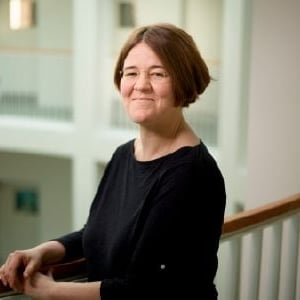
Eske Willerslev
Professor at Lundbeck GeoGenetics Centre, GLOBE Institute, University of Copenhagen, Copenhagen, DenmarkProf. Eske Willerslev is an evolutionary geneticist and researcher in the fields of ancient DNA, DNA degradation, and environmental DNA. He holds a professorship at the University of Copenhagen, where he is the Director of the Centre for Ancient Environmental Genomics (CAEG), as well as a professorship at the Department of Genetics, University of Cambridge.
During his PhD, Eske Willerslev established the field of environmental DNA. Later his group sequenced the first ancient human genome. Willerslev’s research in the last decade has focused on macroregional history, population genomics, pathogen evolution and paleoecological reconstructions. His achievements in this field have helped to understand ancient migration patterns, the spread of specific human traits across the world, pathogen spread and evolution, and ecosystem responses to climatic changes in space and time. This work has led to the rewriting of human history across Europe, Asia, Oceania, and the Americas, and has changed how we track human genetic adaptations.
Eske Willerslev has published more than 300 peer-reviewed articles. He is among the Web of Science’s most Highly Cited researchers within his fields.

Ulrike Herzschuh
Professor at Polar Terrestrial Environmental Systems, Alfred Wegener Institute, Helmholtz Centre for Polar and Marine Research, Potsdam, GermanyProf. Dr. Ulrike Herzschuh is the head of the Polar Terrestrial Environmental Systems group at the Alfred Wegener Institute and a University Professor at the University of Potsdam, Germany. She specialises in the statistical integration of palaeoenvironmental data through her work with both the Institute for Environmental Science and Geography and the Institute for Biochemistry and Biology. Her research centres on ecosystem changes over decadal to glacial/interglacial timescales, with a particular focus on ancient DNA, pollen analysis, and Arctic and boreal vegetation dynamics. Prof. Herzschuh has made significant contributions to environmental science, authoring over 230 peer-reviewed publications, and mentoring numerous early-career researchers. Among her many honours, she received the ERC Consolidator Grant in 2017 for her project GlacialLegacy.